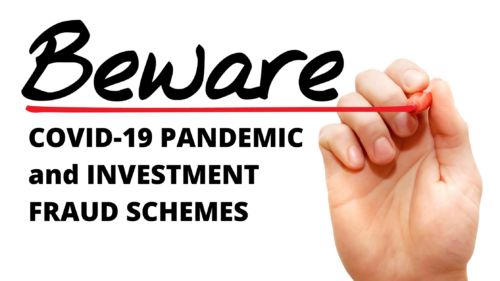Category Archives: Uncategorized
INVESTMENT FRAUD SCHEMES and the COVID-19 PANDEMIC – BEWARE!
Beware of Investment Fraud Schemes! The Securities and Exchange Commission has issued an alert to [...]
Mar
Accredited Investor – The SEC Proposes to Expand the Definition
An accredited investor – How is the definition being expanded? The proposed rule will amend [...]
Mar
Mergers and Acquisitions – What it Means to Your Business
Mergers and acquisitions are an integral part of how industries are shaped. They can allow [...]
Mar
Materiality and the “Substantial Likelihood Test”
What is Materiality? Materiality is a type of fraud because it uses informational defects to [...]
Mar
Functions of Securities Markets
Capital Formation, Liquidity, and Risk Management The three basic functions of securities markets are capital [...]
Mar
JOBS Act of 2012
What does the JOBS Act of 2012 do? This gives small companies the ability to [...]
Mar
What is a General Solicitation?
General Solicitation is the act of marketing a capital raise publicly. Rule 506(b) of Regulation [...]
Mar










